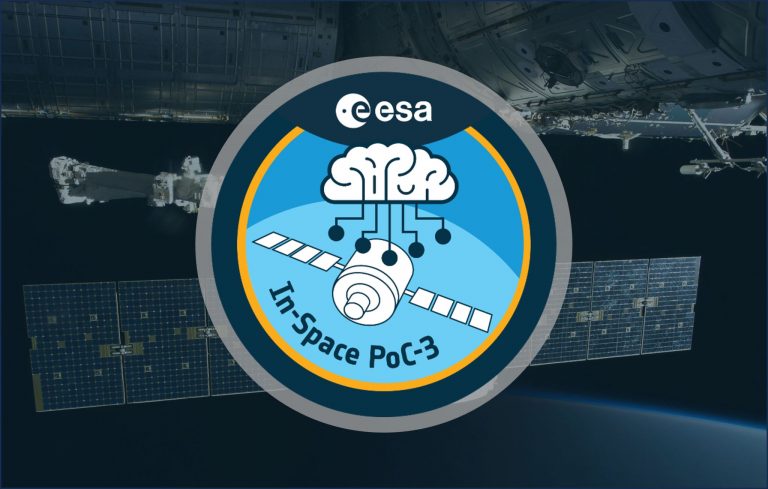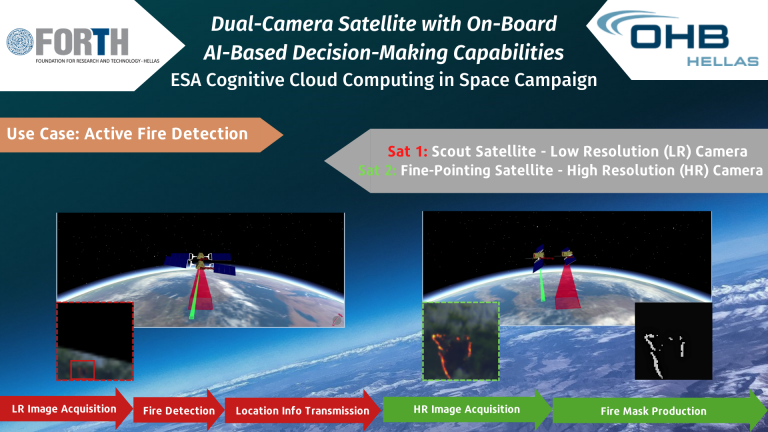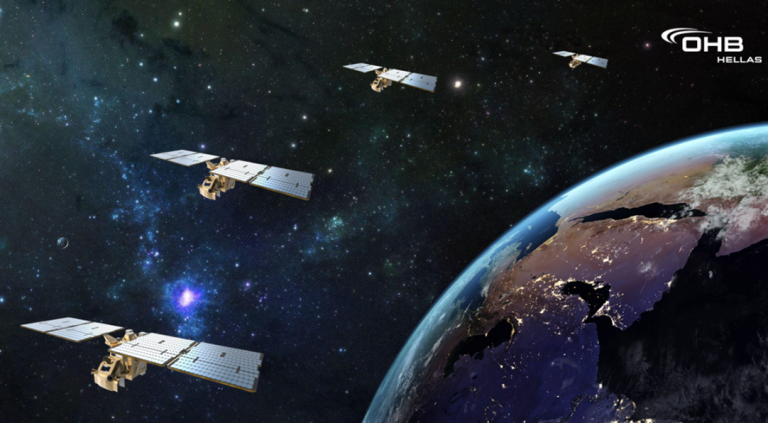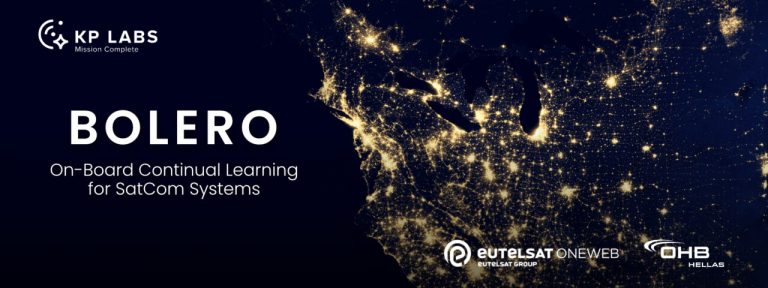AI/ML for Space
Onboard Satellite AI/ML

Versatility
Improve mission adaptability by running multiple AI applications simultaneously at the source on a single satellite, even utilizing the same data.
Latency
Significantly decrease the time it takes to extract actionable insights from satellite-captured images.
Data Volume
Optimize storage onboard satellites and minimize bandwidth usage for more efficient communication from satellite to Earth.
Autonomy
To achieve our aspirations in space, spacecraft must be equipped to operate more independently, processing data, making decisions, and ensuring their own protection.
Our Algorithms
Challenges
Despite the promising potential of AI and ML, several challenges must be addressed to fully leverage these technologies in space. From ensuring high-quality data collection to managing real-time processing under harsh environmental conditions, each obstacle requires innovative solutions and interdisciplinary collaboration. This section explores the key challenges faced when implementing AI and ML systems in space exploration and the critical steps needed to overcome them.
Environmental Conditions
Spacecraft operate in harsh environments with extreme temperatures, radiation, and other factors that can affect the performance of AI/ML systems.
Integration in Spacecraft
Integrating new AI/ML technologies with current satellite or spacecraft systems can be complex and requires thorough testing and validation.
Reliability
AI/ML systems need to be reliable and robust, able to handle unexpected conditions or data anomalies that could arise during space missions.
Data Quality and Quantity
Space data can be sparse, noisy, or incomplete. AI/ML models require high-quality, extensive datasets for training, which can be difficult to obtain from space missions.
Real-time Processing
Space missions often require real-time data analysis for immediate decision-making. Implementing AI/ML algorithms that can operate effectively in real-time is a significant challenge.
Computational Resources
There are limitations on computational power on spacecraft due to size and energy constraints, which can hinder the implementation of complex AI/ML models.
Interdisciplinary Expertise
Developing AI/ML solutions for space requires expertise across various fields, including aerospace engineering, computer science, and domain-specific knowledge of space missions.
Ethical and Regulatory Considerations
As AI technologies evolve, so do the ethical and legal aspects regarding decision-making by autonomous systems in space, necessitating careful consideration.
Made in Greece
Emerging Tech Hub
Greece is witnessing a flourishing tech and startup ecosystem, attracting significant investment from major tech companies like Google, Amazon, and Microsoft. This global interest underscores the country’s potential as a leader in advanced technologies, including AI.
Skilled Talent Pool
Greece boasts a scientifically advanced and cost-effective talent pool that stands out compared to many other European nations. This resource helps drive innovation and development in space technology and artificial intelligence
Real-time Needs
Recent environmental challenges in Greece, such as forest fires and flooding, have created a pressing need for near-real-time monitoring solutions. AI-driven technologies are essential for effective fire detection, flood management, and maritime monitoring, positioning Greece at the forefront of these critical applications.
And More ...
Space Exploration
Rovers use AI for tasks like autonomous driving and selecting scientific points of interest.
Example: NASA’s Perseverance Rover is dependent on AI self-driving models. The communication delay between Mars and Earth can be up to 22 minutes [3]. Given that delay, trying to drive a rover a distance of a few meters might take days. Imaging trying to drive your car, and for each input to your steering wheel (and seeing the road in front of you), you would have had to wait 22 minutes each way. Now imagine if the road was full of boulders and you would have to swerve every few meters to avoid them! So being AI-enabled [4], allows the rover to make real-time decisions, avoid obstacles, and cover more ground efficiently, maximizing the scientific return from the mission.
Real-time Decision Making
Satellites equipped with AI can make on-the-fly decisions.
Examples: They can adjust their imaging parameters and sensors based on cloud cover or other atmospheric conditions. They can use cloud detection models to save bandwidth by discarding unusable images. Another example is the capability to classify images based on their usability with a classification model. Then we can use a ML compression model to reduce the data size, that varies based on what information we want to preserve. For example if we want to track forest fires we don’t care about very high resolution images in urban areas, and that saves precious time on the data transmission [2]. This can be extremely useful in situations that rely in real-time observations such as flood detection, fire detection or military applications.
Satellite operations
AI can improve efficiency in satellite operation, reducing the need for human intervention and potential human error.
Example: Have you ever gotten irritated over a slow internet connection? Novel AI Reinforcement Learning algorithms are being developed in order to improve just that! They work by predicting demand as the satellite flies over an area, taking into account factors like whether that area is a city or a rural environment, or the time of day and whether people are sleeping below. Based on those predictions they allocate the available spectrum (the frequencies in which a signal is transmitted down to earth) more optimally [1], resulting in much faster communication.
Our Projects in Satellite High-Performance Data Processing:
Featured image: Sentinel-2 false-color composite of Fyli, Athens in Greece. Before and after of the August wildfires. It contains modified Copernicus data. Processed by Sentinel Hub, acquired on 2023–08–23 and 2023–08–28.






